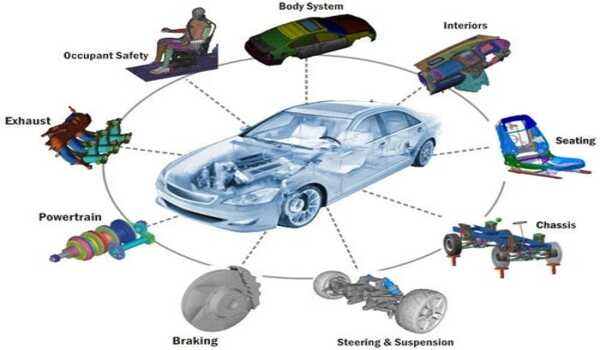Articles and Trivia
Write an articleAutomotive Engineering

Automotive engineering is a multifaceted discipline encompassing mechanical, electrical, electronic, software, and safety engineering applied to the design, manufacture, and operation of vehicles like motorcycles, automobiles, and trucks. This field covers a breadth of areas from developing vehicles' mechanical structures to their electronic systems, focusing on safety, fuel economy, emissions, noise and vibration control, vehicle electronics, performance, durability, drivability, cost analysis, and quality management. Safety engineering ensures vehicles meet stringent regulations through rigorous testing, including crash simulations and impact tests. Fuel economy and emissions are crucial considerations, assessing a vehicle's efficiency and environmental impact. Noise, vibration, and harshness (NVH) engineering manage customer feedback on vehicle comfort and functionality. Automotive electronics play a pivotal role in modern vehicles, controlling operational functions and safety features. Performance metrics evaluate a vehicle's speed, handling, and control in various conditions. Shift quality, durability, and corrosion engineering address transmission, vehicle longevity, and environmental resilience. Drivability focuses on a vehicle's response to different driving conditions. Cost analysis involves evaluating production costs, warranty implications, and market scheduling. The manufacturing process is guided by engineering for efficient production and lean manufacturing techniques. Automotive engineers work closely with other specialists like aerodynamics and body engineers to ensure vehicles are efficient, safe, and meet market demands. The discipline's emphasis on innovation and safety underscores the need for continuous research and development to shape the future of automotive engineering.


